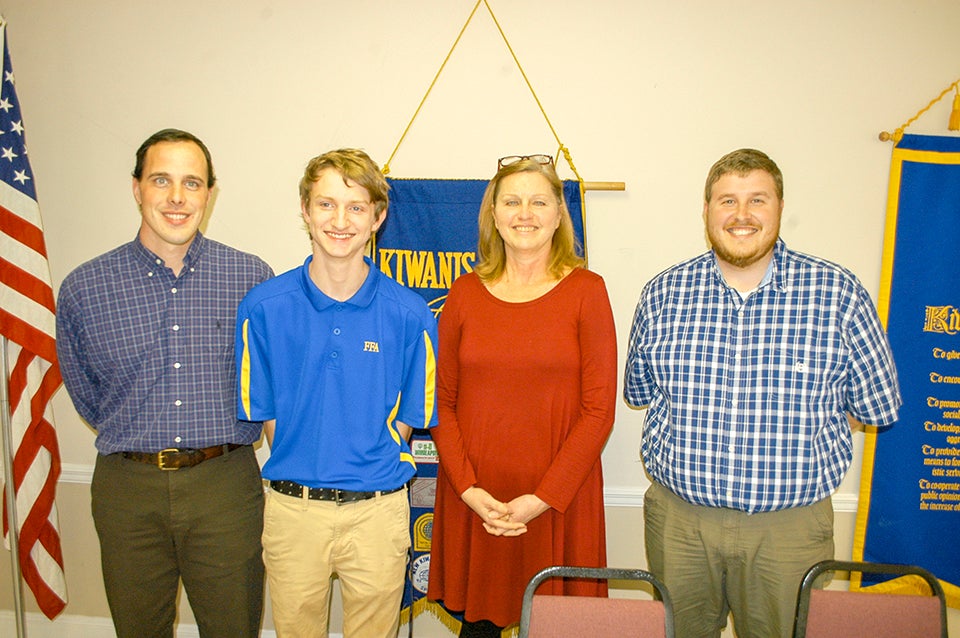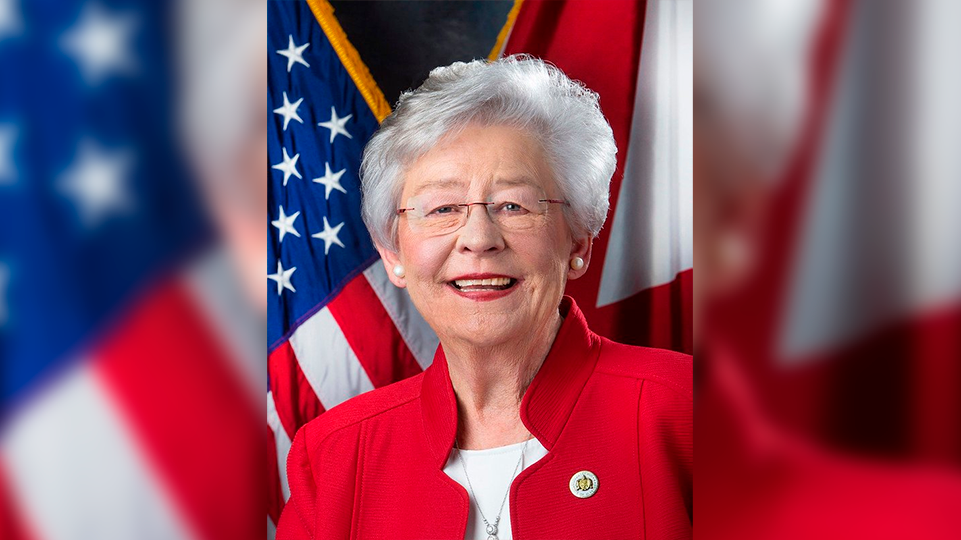Agriculture program well-received at Chambers County Career Tech
Published 6:14 pm Thursday, January 24, 2019

- Two teachers and a student with Chambers County Career Tech’s agriculture program spoke to the Kiwanis Club of Valley on Wednesday. From left, are Joshua Bryan, ag construction instructor; Andrew Rehorn, FFA president; Sharon Weldon, program chair, and J.B. Harris, horticulture instructor.
VALLEY — Chambers County Career Technical Center Director Ken Sealy likes to say the school might well be called Chambers County A&M for its strong agriculture and mechanical engineering programs.
Last week, members of the Kiwanis Club of Valley saw a presentation on engineering from instructors Seth Stehouwer and Tim Blanks.
At this week’s meeting on Wednesday, club members had a chance to learn about what’s been going on with the agricultural programs.
Horticulture instructor J.B. Harris, Agriculture Construction instructor Josh Bryan and student and FFA president Andrew Rehorn talked about how the program has grown to 150 students since its startup several years ago.
Program Chair Sharon Weldon introduced them, saying that Career Tech is a phenomenal part of the school district’s secondary education program.
“Ninety-five percent of the students who go to Career Tech graduate,” she said.
The CTC’s agriculture program, Sealy said, teaches everything from food production to forestry.
“It’s a big component of what we do at the Career Technical Center,” he said. “It’s a great, cohesive program. We were disappointed when we lost our ag program ten years ago due to budget cuts. I was ecstatic when we were able to bring it back.”
Since the restart of the agriculture program about five years ago, the number of students taking ag-related courses has gone from zero to around 150.
The CTC has a very active Future Farmers of America, or FFA, chapter. There are presently 120 members, making it one of the largest chapters in Alabama.
“Our chapter is a three-gold star chapter,” Harris said. “That’s the best there is.
“Some parents have told us our program is the only reason their child stayed in school. Some of our kids are in horticulture, and some are in landscape design. They have the opportunity to be certified in an agriculture-related field. This can lead to a good job as soon as they graduate.”
Harris said that there’s an estimated 400 landscaping companies in Alabama that will hire students out of high school who are credentialed in the field.
There’s high demand for those who have a beef quality assurance certification.
“That means you know how to handle livestock,” Harris said, “and you can earn that through Career Tech.”
Bryan said that salaries for those in the agriculture-related fields range from the low 20s to the upper 90s. Agriculture attorneys make six-figure salaries.
Some students go from the CTC to Auburn University, which has fabulous schools of forestry, agriculture and fisheries.
“Anyone who graduates from Auburn with a degree in these fields has no problem in getting a job,” Bryan said.
Rehorn said that he got into the CTC’s agriculture program by accident, but once there he quickly found it was what he wanted to do.
He was randomly assigned an ag-related class while in middle school.
He loved it and has been very active at the CTC since then.
He spends most of each school day there and takes some classes online.
“We have an outdoor class and an aquaculture class,” he said. “We have some goats and some fish tanks.”
At present, the CTC has three goats. They are named Smokey, Bandit and Frost, who were born on a frigid, Sunday morning.
“We sold some poinsettias we grew in our greenhouse over the Christmas holidays,” he said. “We’re growing winter vegetables right now. In the spring we will be selling hanging baskets.”
Reborn said he and his classmates had really enjoyed going to career expos.
They took in one on the campus of Southern Union’s Wadley branch and got to take in the big one in Moultrie, Georgia, where some fantastic tractors were on display.
Another advantage of taking ag courses at the CTC is that students can earn hunting licenses.
Rehorn said that he’d enjoyed hosting fourth grade students who visited the CTC this past October.
“We showed them what we do in the wood shop,” he said.
The school’s FFA chapter did exceptionally well in state competition, winning many awards including the highly prestigious National Super Chapter Award.
Club member Nancy Warren-Holland said that she had purchased a poinsettia before Christmas and that it was still green.
“How do I get it to turn red?” she asked.
“I’d recommend that you buy another one from us,” Rehorn said, getting laughter throughout the room.
He added that putting an ice cube on the plant each day would speed up the process.
Harris said that the Career Tech students were constantly busy.
“One-hundred percent of them are doing something somewhere on campus,” he said. “They take what they learn in the classroom and apply it to real-world situations.
“A lot of our kids go on to college. In many cases, what they’ve learned at Career Tech has them on a fast track toward getting a degree in a related field.”
In the spring, the students sell vegetables they have grown in the greenhouse.
“Last year, we sold out in one week,” Harris said. “We could sell a lot more, but we have a small greenhouse. Also, we don’t want to compete with small farmers in the local area. What they sell helps them make a living.”
Bryan said a goal of ag education is the teach students what they can do when they are at home.
“Everyone can have blueberries and can have an apple tree in their yard,” he said. “We want to prepare our kids for work. We’d like for them to go to college, graduate and be good, productive citizens. We also want to teach them basic fix-it skills they can do around the house. There are many times you don’t need a plumber or an electrician to fix a problem.
“With some practice, there’s a lot of situations you can take care of yourself.”





